ANNISTON ARMY DEPOT, Ala.--The depot formally opened its new Powertrain Flexible Maintenance Facility on Aug. 12 at 9 a.m. with a ribbon cutting, signifying the end of a three-year construction project. Federal, state and local leaders were here to tour the facility, which houses overhaul and repair work on reciprocating diesel engines for combat vehicles.
"No doubt this is a world-class industrial facility," said Maj. Gen. Scott G. West, commanding general of TACOM Life Cycle Management Command with headquarters in Warren, Mich., "but it's the well-trained, well-led workforce here that makes it a world-class facility."
The $85 million, state-of-the-art plant comprises 142,500 square feet and was designed with a flexible floor plan that allows for movement and adjustment of maintenance equipment and production lines to support a changing work environment.
Currently, workers are remanufacturing reciprocating diesel engines for the following vehicles: M88, FAASV, Paladin, AVLB and M9ACE. The facility is also used in the production of auxiliary power units.
"We're really excited to have these new capabilities. The layout of the plant floor is designed to accommodate any future modifications in vehicles and workload," said Keith Smith, manager of the Reciprocating Value Stream. "This shows that the depot is investing in the future."
Based on a regular one-shift, 8-hour day, five days a week work schedule, workers in this manufacturing facility can produce 1,875 engines a year. Approximately 170 mechanics, welders and other trades workers are staffed during a shift.
The decades-old facility where the same work was performed until the recent move is known as Bldg. 130 to those familiar with the Nichols Industrial Complex. The old reciprocating engine shop was 90,000 square feet in comparison and in need of equipment upgrades and structural renovations. The previous facility's design didn't permit testing and product containerization to take place inside the same building with the other processes.
At the PFMF, the disassembly, cleaning, repairing, machining, reassembly, testing and shipping is all performed under one roof using equipment that offers a more ergonomically and environmentally friendly way of remanufacturing engines.
For instance:
Molten salt baths in the new facility replace the same degreasing process in the old building that used the chemical compound trichloroethylene.
The humidity controlled manufacturing environment reduces or eliminates rusting during the rebuild process, cutting down on the use of toxic chemicals required to remove rust from remanufactured parts.
Chemical dip lines are fully automated with covers, which reduces the evaporation of toxic chemicals into the employees work environment and the atmosphere.
Electric material movers replace the use of propane powered machines, reducing the depot's carbon footprint.
Eleven power washers in use at the PFMC minimize water usage by cleaning and recycling their own water.
Programmed automated on/off switches for the heating and lighting save energy.
All metal parts not suitable for remanufacture or reuse are recycled.
Partners for the future
The ribbon cutting was well attended by city and county leaders as well as educators like Dr. William Meehan, president of Jacksonville State University.
"This is a great day for Anniston Army Depot and for everyone involved in our mission. I just want to thank all of the local representation here such as the mayors and those here from the Chamber of Commerce," said Depot Commander Col. S. B. Keller. "Just like all of the people who work here, this depot is part of the community, and seeing this facility come to fruition is a prime example of partnership because it's more than just the depot. This is an entire community supporting our nation's warfighters."
Many of the community supporters who attended the ribbon cutting were also present for the groundbreaking in 2006. Such was the case with U.S. Rep. Mike Rogers who represents the 3rd Congressional District of Alabama.
Rogers said that when he was first elected to Congress in 2002, the Powertrain facility topped his list of objectives.
He "grew up in a depot family" with his father working as a firefighter here. "This depot has meant so much to me and my family and to you all, I want to make sure that the depot has what it needs to be a part of the mission as long as it's needed," he said.
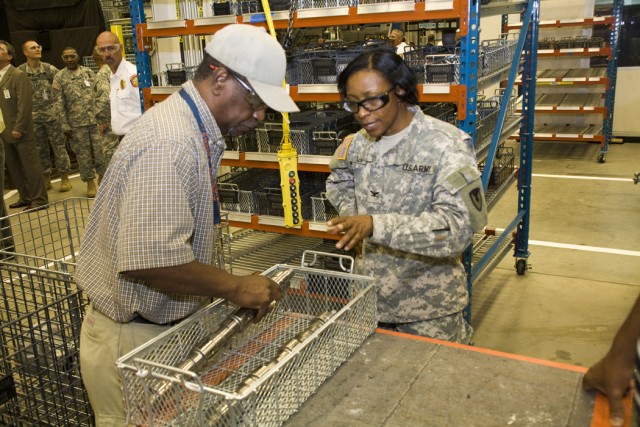
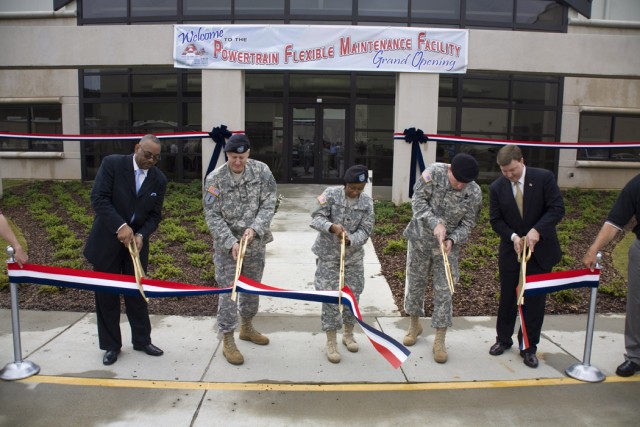
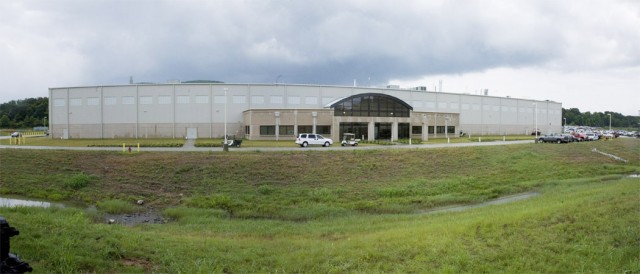
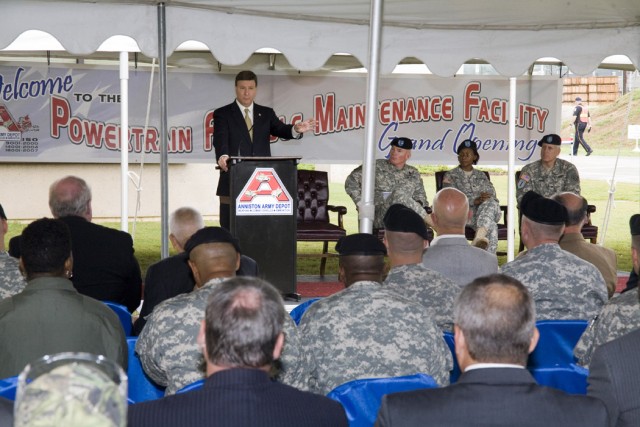
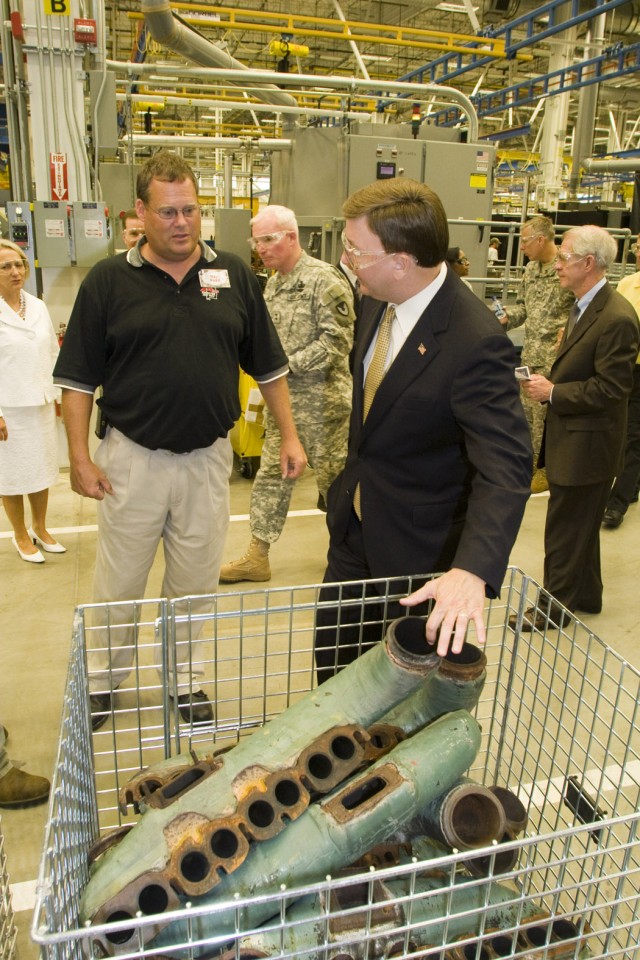
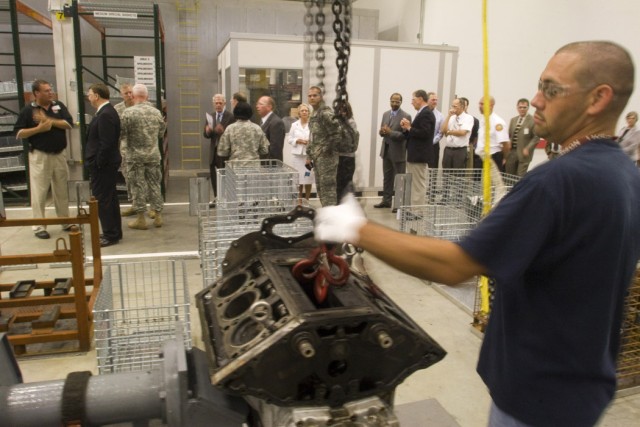
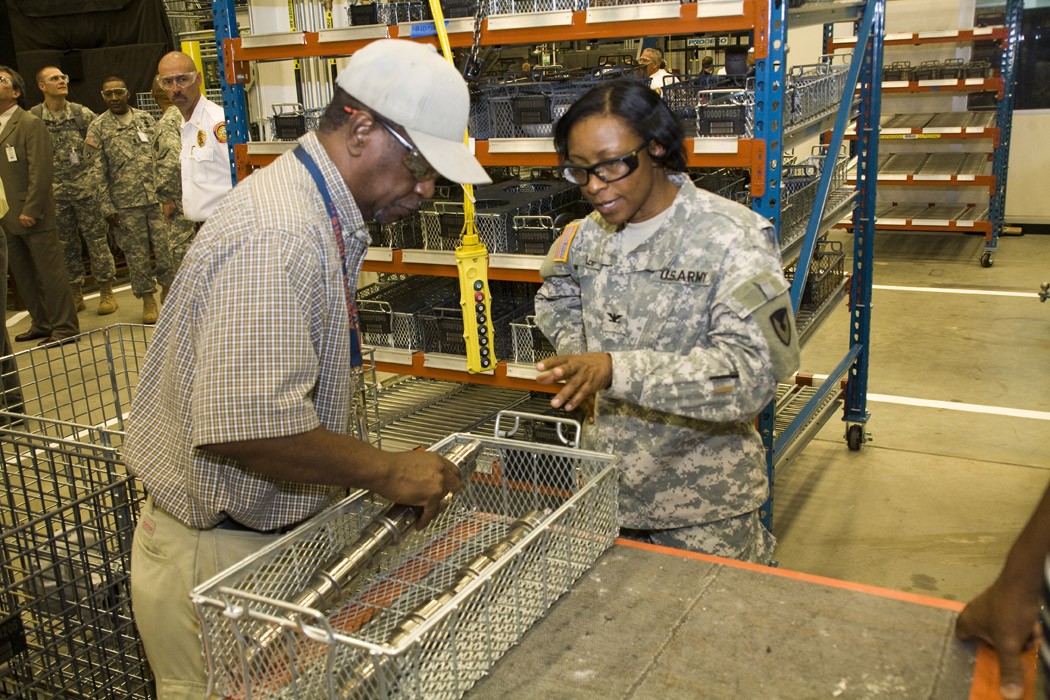
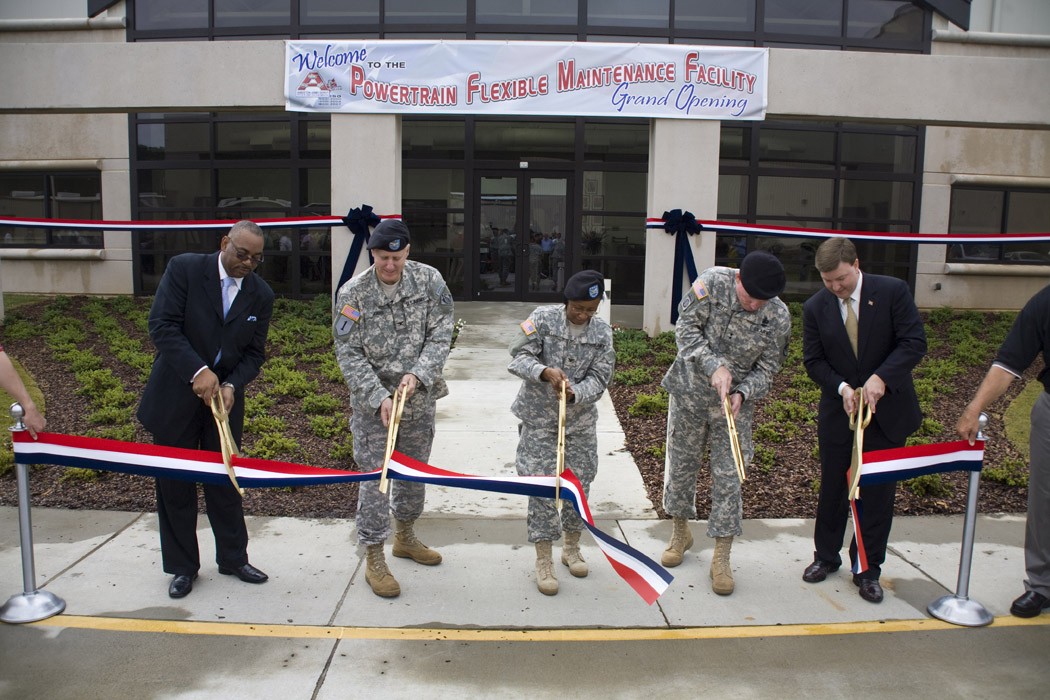
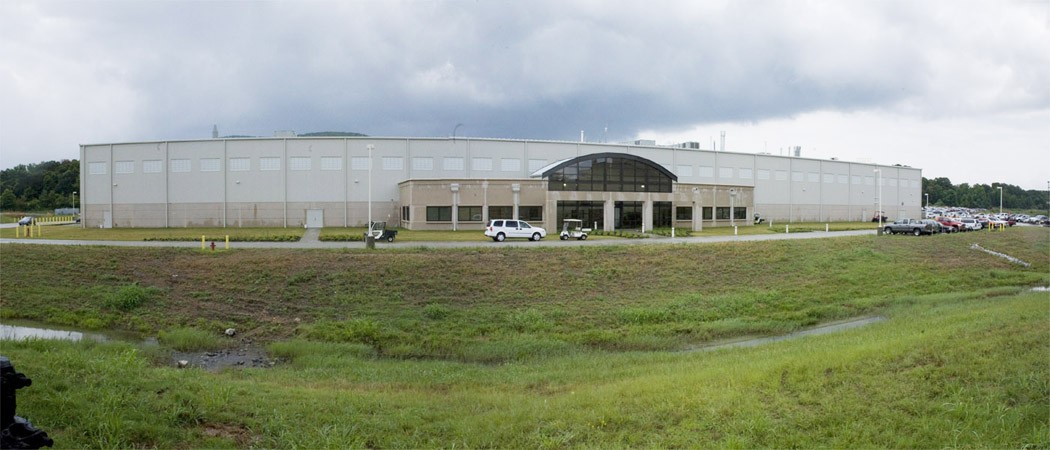
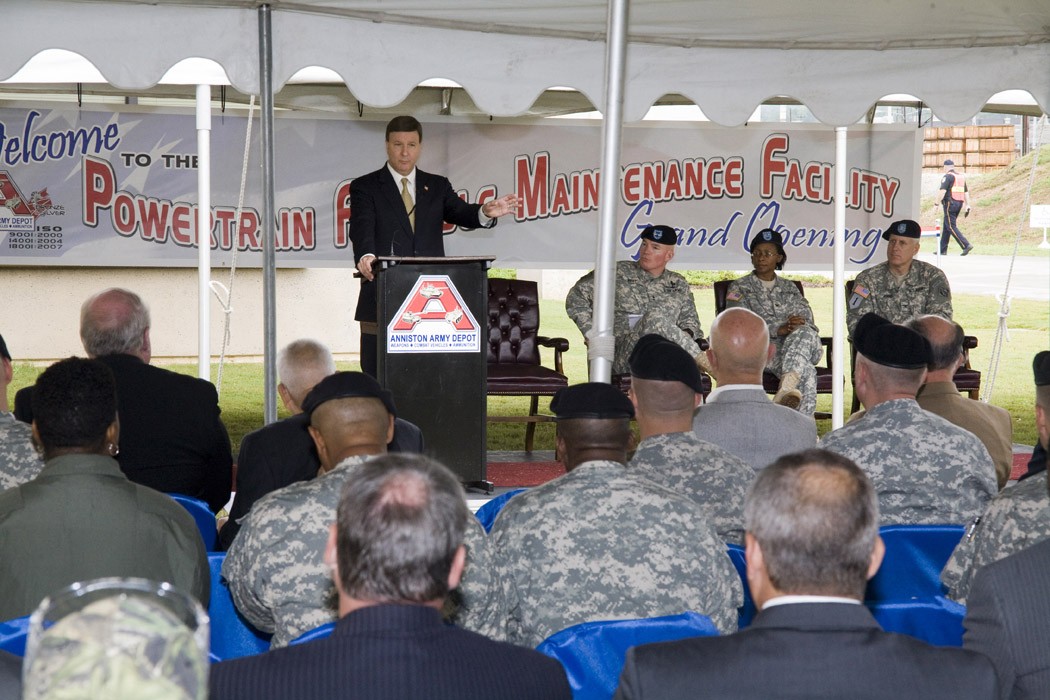
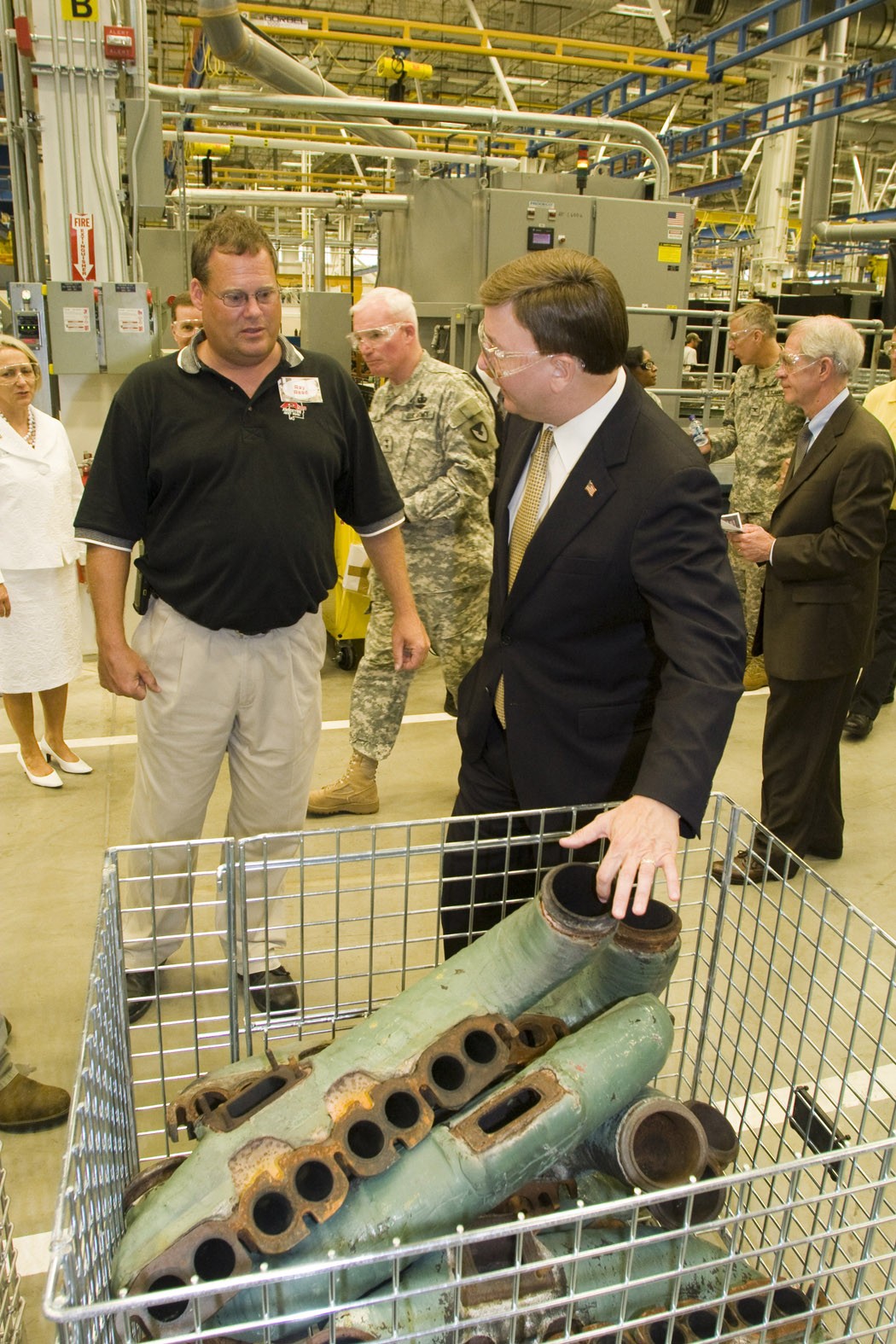
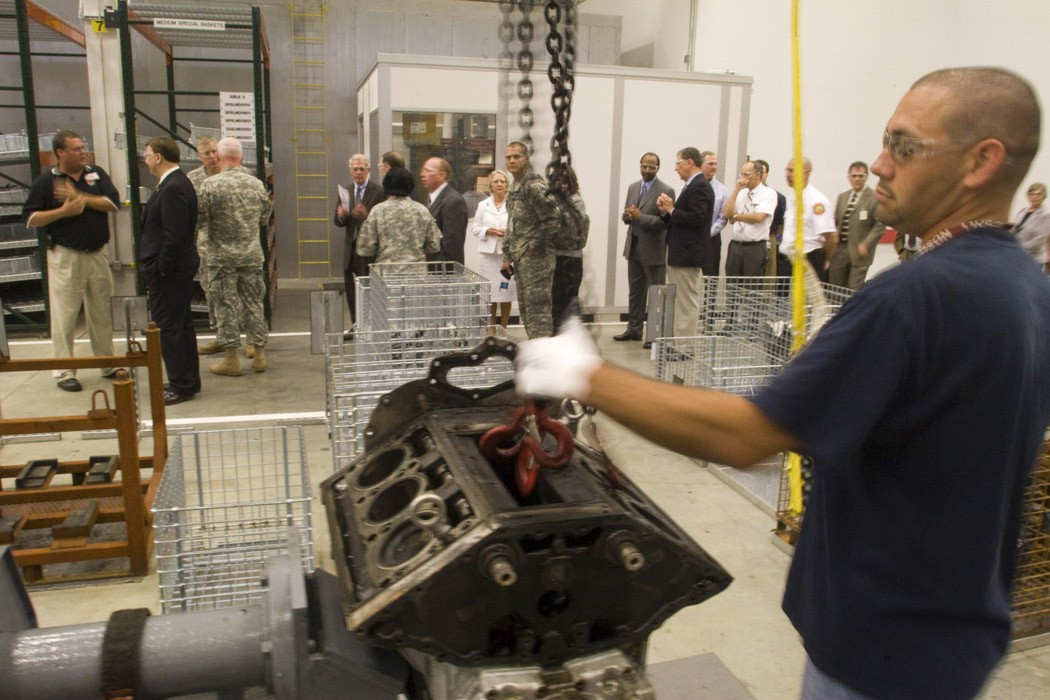
Social Sharing